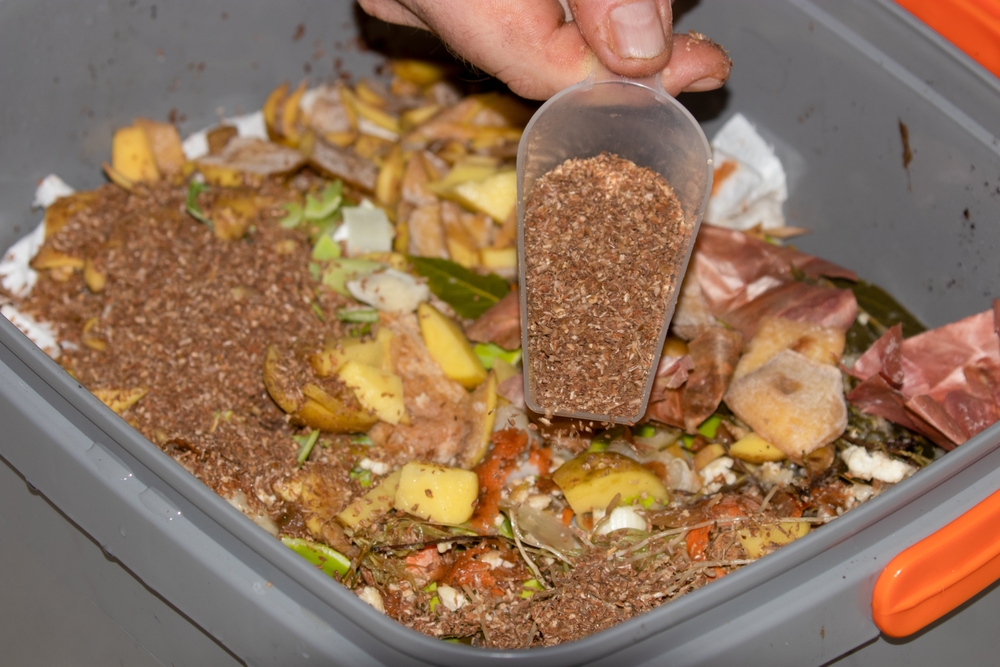After any meal, there are always scraps, like veggie peels, uneaten leftovers, or fruits that went untouched. Instead of tossing them in the trash, you can give them new life through composting.
Two easy ways to process food waste are bokashi and vermiculture (worm composting). Both are beginner-friendly, don’t take up much space, and are easy to learn.
Bokashi
Bokashi uses microbes to ferment food waste in an airtight bucket. The main component of bokashi fermentation is bokashi bran, typically a mix of wheat or rice bran, water, effective microorganisms, and molasses, which can be homemade or purchased locally or online. This method of food waste processing works faster than traditional composting, produces little odor, and can even handle meat, dairy, and cooked food.
How it works:
- Toss chopped-up scraps into a bokashi bucket and sprinkle about 1 tablespoon of bokashi bran per inch of food waste
- Seal the bucket tightly, draining the liquid every two to three days
- After about two weeks, the scraps are fermented and ready to be buried with soil
Bokasi also produces a liquid “tea” that can be diluted and used as plant food. A little bit goes a long way.
Vermiculture (Worm Composting)
If you don’t mind worms, this method is for you. Composting worms turn kitchen scraps into rich compost for your garden or houseplants.
What you’ll need:
- A worm bin with holes for ventilation and moisture (many are sold at local farm markets)
- Bedding like shredded newspaper, coconut coir, or shredded cardboard
- A handful of composting worms. Keep in mind that it is illegal to import worms into Hawaiʻi or between neighbor islands, so they must be obtained locally. The Oʻahu Worm ʻOhana has a great list of O’ahu-based worm suppliers.
Feed them fruits and vegetables, coffee grounds, and eggshells, but avoid meat, dairy, and too much citrus. Worm bins do not smell and can be kept in an apartment, garage, or even under the sink. No matter where you place your worm bin, be sure to avoid subjecting your worms to temperature extremes by keeping them out of direct sunlight.
Why is it important?
Food that ends up in landfills doesn’t break down properly. Instead, it creates methane, a greenhouse gas that traps heat in the atmosphere. Food scraps from litter or overflowing garbage bins can also be swept into storm drains and the ocean, negatively impacting water quality. Composting at home keeps waste out of landfills, reduces landfill methane emissions and climate change impacts, protects our ocean, and saves money on fertilizers. Compost use also restores local soil health, increases climate resilience, and sequesters carbon, all while helping your garden and plants grow better.
Change Starts with You
You don’t need a huge garden or be a garden expert to get started. Whether you employ microbes for bokashi fermentation or let the worms do the hard work for you, these small actions make a big difference.
The next time you are about to throw away scraps, remember they could be the start of something new.
Sources: The Basics of Bokashi Composting, Bokashi Compost Guide, Small-Scale Vermicomposting, Learn to Worm, Compost is a Climate Solution


